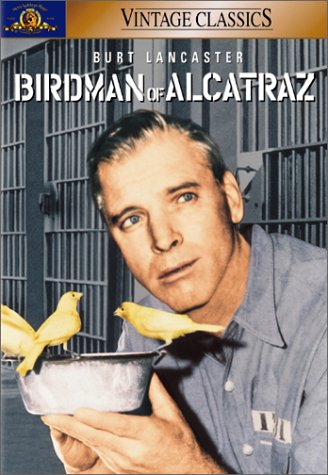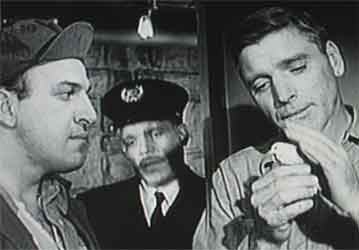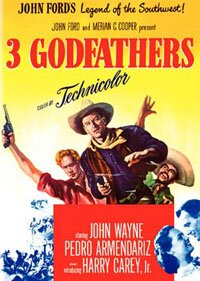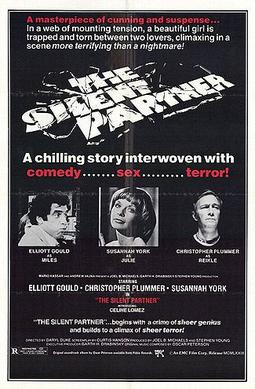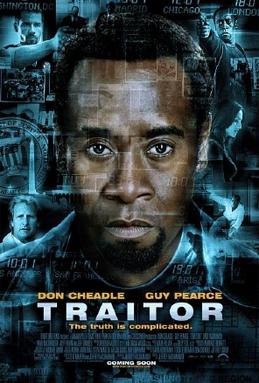 After being arrested for possession of marijuana in 1948, Robert Mitchum had his work cut out for him in the eyes of the studio. How could audiences go see the movies of a man who would do something so horrible? Hindsight here is of course 20/20 -- audiences didn't care both at the time and in the long term -- but nutbag himself Howard Hughes insisted Mitchum clean up his act some, including acting in a sweet, little Christmas movie, 1949's Holiday Affair.
After being arrested for possession of marijuana in 1948, Robert Mitchum had his work cut out for him in the eyes of the studio. How could audiences go see the movies of a man who would do something so horrible? Hindsight here is of course 20/20 -- audiences didn't care both at the time and in the long term -- but nutbag himself Howard Hughes insisted Mitchum clean up his act some, including acting in a sweet, little Christmas movie, 1949's Holiday Affair.From his days as a supporting bit player to later in his career as a big-time movie star, Mitchum played a huge variety of roles, but they were often based in one similar character...a laconic but still tough, very capable man who usually ended up on the good side, usually in a film noir or a western. Sure, there were exceptions like his villainous turns in Night of the Hunter and Cape Fear where's he is downright frightening, but typically he took roles that were in his wheelhouse. But of all the Mitchum movies I've seen, Holiday Affair is the first, wait for it, romantic comedy I ever saw him in.
Mitchum plays Steve Mason, a department store salesman with dreams of heading to the west coast to design sailing boats. He's an all-around good guy, if a little quirky. But one day at the store, he doesn't turn in Connie Ennis (Janet Leigh), a comparison shopper looking for the best deals around town. As a result, Steve gets fired. Connie offers to take him to lunch -- because that makes up for losing your job -- and Steve ends up helping her the rest of the day posing as her husband. He even helps bring some of her purchases home where he meets Carl (Wendell Corey), Connie's fiance, and her 6-year old son, Timmy (Gordon Gebert), who's father was killed in WWII.
Well, Carl is no idiot and sees that right away Steve is a bit of a threat to his idyllic little life he's got planned out (I shouldn't say that, it makes it sound like Carl is an evil genius). Making it tougher, precocious Timmy clicks right away with the quirky Steve. Seeing he's caused a bit of a stir, Steve excuses himself and leaves but that's not the end for him and Connie and Carl and Timmy. Set in New York in the days around Christmas and New Year, this was a harmless enough romantic comedy. I didn't spoil how the ending goes, but if you can't figure it out, you haven't seen enough romantic comedies.
For a change it is nice to see Mitchum play completely against type. Just like other actors often typecast into a certain part -- John Wayne comes to mind -- Mitchum had a ton of ability onscreen. He was an actor, not just a movie star, so seeing him do some comedy is great after so many parts where he is a tough detective or a roaming gunfighter. The same goes for Janet Leigh who was often in big period epics like The Vikings or darker roles like Psycho or The Naked Spur. As a single mother, she's trying to stay connected with her deceased husband while caring for her son. Now to Corey, who's perfect as the other guy schlub, the man who starts with the girl but is destined not to get her in the end. It's only a matter of how long before it happens. Also look for a young Harry Morgan in a great one-scene appearance as a police lieutenant trying to figure exactly what's going on with Steve, Connie and Carl.
Nothing really spectacular about this one at all with a generally cheap TV feel to the story. Eight-year old Gebert is surprisingly good for a child actor, handling his scenes well enough with Mitchum, Leigh and Corey to the point he's not overshadowed. He does have the syndrome so often present in romantic comedies; kids that say things no real kid would ever say, but it's never obnoxious. Even with nothing to set this apart from most other B-movies, it's enjoyable and it is hard to mess up a Christmas movie. Couldn't find a trailer, but TCM has four clips available to watch.
Holiday Affair (1949): ** 1/2 /****







